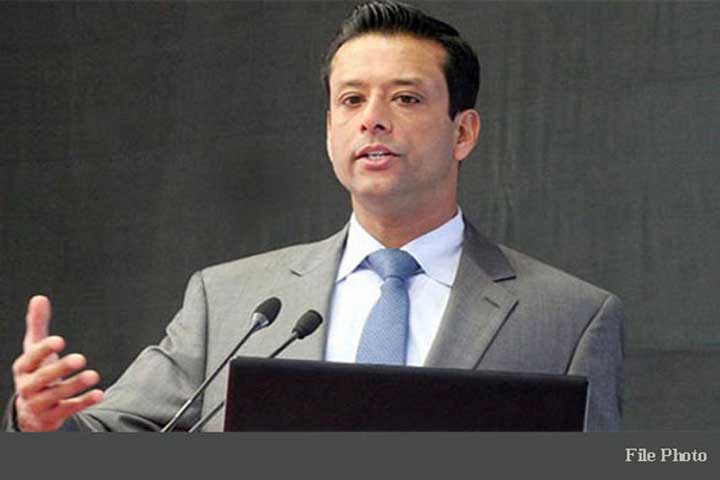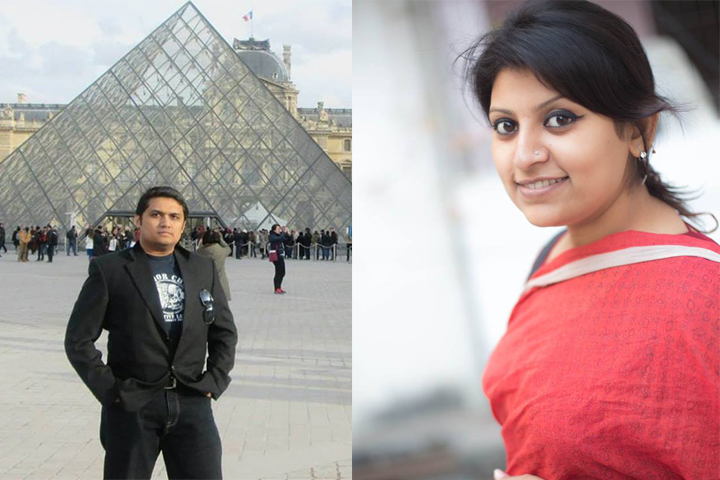Solar power saves the day for women entrepreneurs of Ramgarh coal belt
Kanija Fatma (40) and her husband Riyamuddin Ansari work as tailors in minority-dominated Maganpur village in Ramgarh district of Jharkhand in eastern India.
Three years ago, Fatma got a proposal from Bengaluru-based SELCO Foundation to set up a solar system in her house for sewing work. The couple agreed, and two solar panels and an inverter were installed.
This small initiative brought about a big change to her family. Tailoring work thrived, registering 20 to 30% increase in income. Earlier, Fatma’s electricity bill was around Rs 240 per month, though she always tried to reduce it by sewing manually. With the increased use of solar energy, the bill has come down to around Rs 140.
The SELCO Foundation’s permanent magnet DC motor was attached to her sewing machine, before connecting it to the photovoltaic system. As a result, Fatma, who has studied up to Class 8, no longer has to strain her foot that was fractured once.
Ramgarh was once a prominent coal-mining district. But according to a study by iForest, a think tank, more than half of the coal mines in Ramgarh have stopped functioning in the last few years. Earlier, coal mines covered around 10.5% of the district’s geographical area. By 2040, even the functional mines are expected to be shut as they are old and already overexploited.
Right now, agriculture is the biggest source of employment in the district. According to the Economic Census of 2013, only 3% of the people in the district are employed in mining sector, and that too is gradually declining.
Residents are now exploring ways to use renewable energy to boost their incomes. Of the 400 families living in Maganpur in Gola block, over 250 are tailors. "After we switched to solar energy, more villagers evinced interest. In fact, before getting the system installed, they usually come to my house to enquire about its performance," Fatma told 101Reporters.
Kanija Fatma and her husband, also a tailor, set up a solar system in her house for sewing work. Following this, they registered a 20 to 30% increase in income, she says (Photos - Rahul Singh)
Aman Bhardwaj, SELCO Foundation project coordinator (knowledge and outreach), told 101Reporters that livelihood options outside the coal sector were limited in Ramgarh. “Our work here is to generate income for people through micro-businesses using decentralised renewable energy.”
Presently, more than 50 houses in Maganpur use solar power for sewing, which creates new opportunities for women. “Things were really difficult. By the time I could sit down to stitch after completing household chores, the (grid) power would have gone,” said Shahnaz Parveen (27), who has been working as a tailor for the last seven years.
She now stitches for eight hours, even after finishing all the chores, thanks to the solar system installed in her house two months ago. Parveen’s husband Nishar Ahmed is also a tailor.
Parveen had to pay Rs 17,500, which was half the cost of the solar system, while the rest was paid by SELCO Foundation under CSR funding. Agragati, the implementing partner, executed the project. Apart from SELCO, Agragati also works with The Energy and Resources Institute (TERI) to promote green entrepreneurship using solar energy.
Gola block head Geeta Devi was the first to get the system installed. “I joined the self-help group of Jharkhand State Livelihood Promotion Society (JSLPS), through which I learnt about the solar system and got it installed for sewing work. Subsequently, I associated with Agragati, which opened up new avenues before villagers,” she said.
Agri-based entrepreneurship
Rural entrepreneurship has also benefitted due to the introduction of solar power. A total of 549 farmers, including 120 women, are associated with Sakhi Savera Krishak Production Company in Sarla Kala village of Gola block’s Sangrampur panchayat. The farmers’ producers’ organisation (FPO) now use solar energy for paddy threshing and oil extraction.
“I have been getting valuable information about farming after joining the FPO. The use of solar energy has saved us from paying for diesel and petrol,” said Lalita Devi, who joined the self-help group in 2004.
The FPO’s processing unit and office function from the house of its chairman Laxman Mahato. According to its chief executive officer Dineshwar Mahato, 16 solar panels of a total of 300 megahertz were installed to power agricultural production, including paddy harvest and oil extraction from mustard, safflower and mahua, a flower that forms the base of a drink. In all, the system cost them Rs 6.5 lakh. In March, three solar-operated machines worth a total of Rs 1.42 lakh were installed.
Giribala Devi, wife of FPO board member Atul Bedia, is all praise for the solar system. A resident of Bediya Jara Tola in Sarla Kala, she said the solar irrigation system installed under the Tyma Watershed Scheme helped her family irrigate its two-and-a-half acres. “We farm even in summers now,” she added.
Giribala Devi and son; solar irrigation system helps the family water crops on their two-and-a-half acres of land; (Below) Jayanand Chowdhary is grateful to his solar-powered irrigation pump, which saved his paddy crops from this year's drought.
Basmati Kumari of Barki Lari in Chitarpur block of Ramgarh is pursuing her BA course. She does her sewing with a solar-powered machine in her spare time and earns around Rs 250 a day. Her husband Ravindra Patel does stationery printing from home.
The family gets a good yield by irrigating the fields using the photovoltaic system under the PM-KUSUM. Patel’s father Jayanand Chowdhary said this year’s drought did not affect their rice crop, thanks to their solar-powered irrigation pump. His only complaint was that he got the system three years after he had applied for it.
According to a NITI Aayog report, India’s agriculture sector receives only 1% of its total energy consumption from solar. Considering that Jharkhand produces only 97.14 MW of solar power per day, there is a long way to go.
Promoting employment
Solar energy has the potential to transform many other traditional jobs. A jeweller in Chitarpur, Sujit Kumar, installed a solar-powered machine in his house a year ago. Now, around 15 to 20 craftsmen depend on it to make jewellery. “The machine cost me Rs 42,000. But the good thing is that work does not stop when there is no electricity.”
Prashant Kumar Swain, Fellow (Rural Energy and Livelihood), TERI, told 101Reporters, “We have been working in the renewable energy sector for the last 20 years. Our focus has always been on lighting up homes. But now, we are looking at projects that use electricity for livelihood. We tried to understand the people’s energy needs, their usage patterns, and then liaised with solar system suppliers before project implementation.”
Citing the case of 200 entrepreneurs in Chitarpur, Swain said using solar energy has improved their work, besides lighting up homes and helping children to study without interruptions if the lights from the grid went off.
Agragati programme lead Kiron Shankar Dutta said a study done by TERI in the Chitarpur sewing cluster to ascertain peoples’ needs found that the area usually had no power supply for six to eight hours a day. The study, a copy of which is available with 101Reporters, found that power disruptions mostly happened during daylight hours when people want to do sewing. Productivity usually dips by 30 to 40% if there is no power for two to four hours.
The study also found that people did not have the money to restart work after COVID-19. According to it, using a photovoltaic system could generate an income of Rs 1,500 per month for a machine operator.
Solar energy has the potential to transform many other traditional jobs like that of Sujit Kumar, a jeweller in Chitarpur, who installed a solar-powered machine in his house a year ago; (Below) Dineshwar Mahato, the CEO of Sakhi Savera FPO, uses solar energy for paddy threshing and oil extraction.
State energy policy
After eight years, Jharkhand revised its solar energy policy in July 2022 to aim for 4,000 MW of power generation in five years. Under the plan, Jharkhand has set a target of 720 MW power generation from distributed solar.
Jharkhand Renewable Energy Development Agency’s Executive Engineer Mukesh Prasad told 101Reporters that the new policy has outlined provisions for employment generation via solar power. However, he acknowledged that there was neither a specific plan for women in the policy nor any talk of direct participation from the JSLPS.
JSLPS Chief Operating Officer Bishnu C Parida said 1.86 lakh SHGs comprising 10 to 20 women have been formed in the State under the National Rural Livelihood Mission. However, he did not give a direct answer regarding solar energy.
Neeraj Kuldeep of New Delhi-based Council on Energy, Environment and Water, which drafted Jharkhand's Solar Energy Policy-2022, said, “After assessing the possibility of entrepreneurship, we have made a provision for 1,000 solar villages in the new policy.”
Source: 101Reporters
29 Dec 2022,20:21
















 Live Tv
Live Tv









